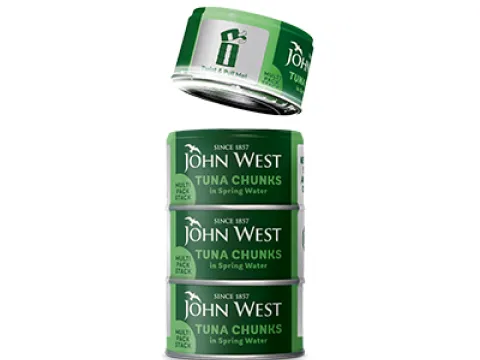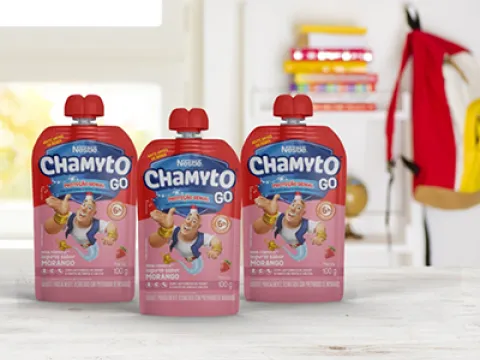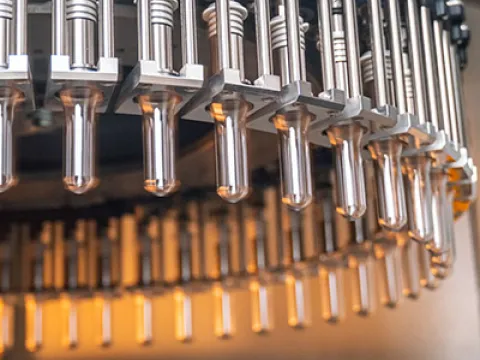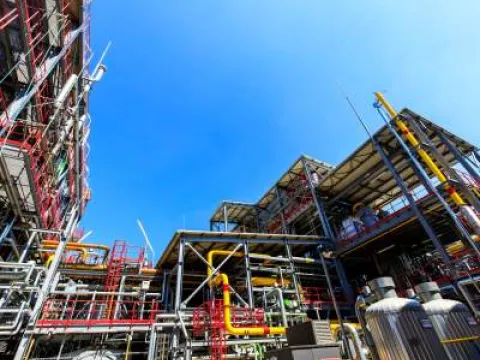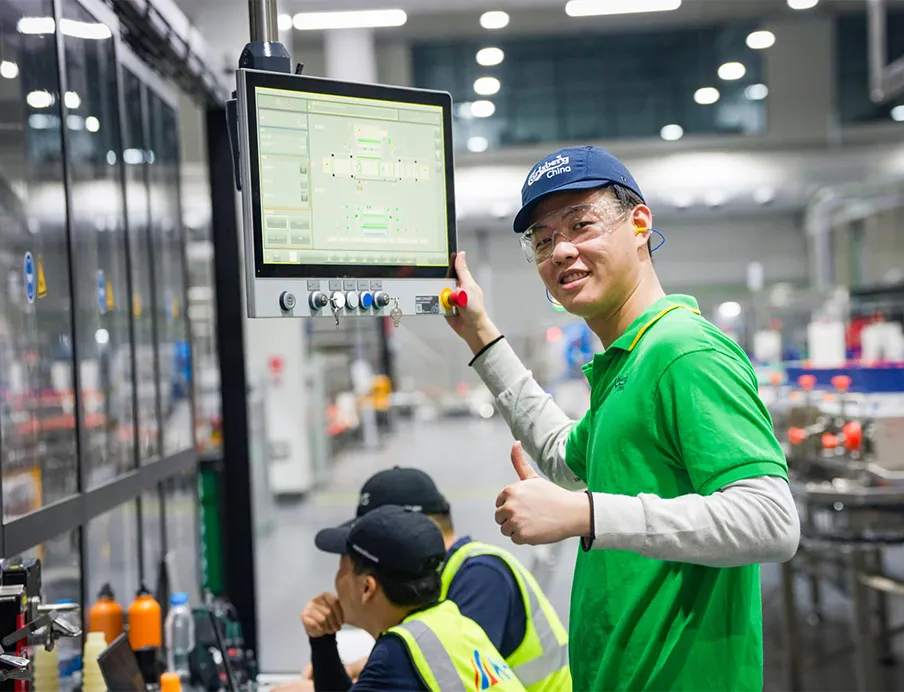
Carlsberg and KHS have been working together as partners in Asia for a long time. KHS Global Key Account Manager Norman Gras looks back on the close and extremely productive cooperation: “Over the past ten years, we’ve successfully managed lots of projects together, especially in China.” Most recently, in 2021, KHS implemented two canning lines in Dali and Yibin, each with a capacity of up to 90,000 containers per hour. The lines were installed and commissioned under the difficult conditions of the coronavirus pandemic. Gras is all the more proud that the work was completed extremely efficiently and with very good results: “On acceptance we had a line efficiency of 99 and 100 per cent, even before the agreed deadline.”
The latest joint project in the southern Chinese metropolis of Foshan is also one of the largest to date. Carlsberg has been building a greenfield project with a capacity of five million hectolitres since 2022. It can be expanded to 14 million hectolitres in three construction phases. New buildings with a total area of around 80,000 square metres are being constructed on a 16-hectare site. In this first phase, the group has so far invested €191 million in its 27th brewery in the People's Republic.
Carlsberg's sustainability goal: zero emissions by 2040
In terms of modern, smart and green production, the new plant is a flagship. “The entire project was planned and implemented according to our extensive ESG plan, Together Towards Net Zero and Beyond,” emphasises Kime. With this plan, Carlsberg China aims to achieve net-zero emissions across the entire value chain by 2040. "In addition to innovative technology, we’ve thus focused primarily on measures designed to boost sustainability. This includes our concept of the ‘sponge brewery’: with this, we collect and treat the abundant amount of rainfall we get in this region in order to conserve our water resources and minimize wastewater.” It also uses recyclable and energy-efficient building materials. It meets national three-star standards for green building.
Additionally, the new location covers up to 30 per cent of its electricity needs with a photovoltaic system on the roof of the factory. With the help of an intelligent monitoring and management system, the brewery monitors and controls its entire energy consumption. This way, the company reduces both consumption and the associated environmental impact.
Pioneering KHS technology
Kime has once again chosen KHS as its technology partner. “The high quality of KHS lines and machines and efficient project management have become key deciding factors for us over the last few years.” It is no wonder that the systems supplier is providing all the filling and packaging technology for the new brewery. This includes a total of four complete lines.
A keg line can fill up to 90 20- to 30-litre kegs with beer per hour. These are destined primarily for export to the special administrative regions of Hong Kong and Macau and to southern China. This is because there are a particularly large number of bars and restaurants here. In addition to the "Innokeg CombiKeg" for exterior and interior keg washing and racking, the new system also includes modern KHS palletising technology. Besides simple loading and unloading, the "Innopal RK" articulated robot feeds empties to a cap remover and full kegs to a capper. At other robot approach points, the caps are labelled with product data labels and the best-before date is printed on the keg shoulder.
Carlsberg installs two refillable glass lines for up to 48,000 bottles per hour
Two refillable glass lines each achieve an output of up to 48,000 bottles per hour. One of them is designed as combination line that also processes non-refillable bottles in a total of 13 different formats. For this purpose, it is equipped with a rinser-filler-capper block in addition to the high-performance double-end bottle washer "Innoclean DM". The new glass bottles are routed past the bottle washer and briefly blown out with sterile air in the rinser. This consumes significantly less water and thus contributes to Carlsberg's sustainability strategy.
The heart of the monoblock is the "KHS Innofill Glass DRS ECO" filler. It sets standards in terms of minimal oxygen pickup and low CO2 consumption. Fully automatic probe adjustment, CIP caps, and clamp grippers also ensure minimal setup times. Closed with ring-pull lids or crown corks, the containers are fed from the block to the "Innopack PPZ"- This is a packaging all-rounder in the high-performance range. The change parts required for the format changeover are removed fully automatically from magazines and changed without operator intervention. This module also ensures the shortest possible setup times without tying up personnel.
The KHS canning line is designed for up to 90,000 containers per hour. In addition to hygiene and flexibility, the “Innofill Can DVD” filler features highly efficient oxygen monitoring. This is the key to high beer quality, which is ensured by the patented CO2 purging method. Compared to conventional methods, it reduces the amount of oxygen entering the beverage can by up to 90 per cent. At the same time, the process requires significantly less carbon dioxide.
Benchmark for the entire Carlsberg brewery group
When it came to the practical implementation of the systems, Kime was particularly impressed by the speed of commissioning. For example, on the canning line: “Within just eight days of actual work time, we brought the line up to a performance rate of 98.5 per cent. This means that it’s only down for a few minutes during an eight-hour shift. There’s not yet been anything like this throughout the entire Carlsberg Group.” For him, this success is the result of a trusting cooperation. Gras agrees. “Over the years, we’ve constantly improved our level of quality and professionalism and have set new benchmarks with respect to communication and our manner of work.”
Efficient KHS team on site
This also applies to the local KHS employees, who have long since been handling installations on their own, as Gras emphasises. Kime adds, “China’s proverbial strong work ethic runs through the entire team and binds us all together.” This puts even the most demanding goals within reach, the manager believes.
Affluent target group in South China
The new location in the Pearl River Delta is to supply beer to the economically most developed province of Guangdong and the entire region of South China. Around 150 million people live there, most of them young and with comparatively high purchasing power. The range includes six international premium products such as Carlsberg, Tuborg and Grimbergen, as well as six strong local brands, including Wusu, Chongqing and Xixia.

